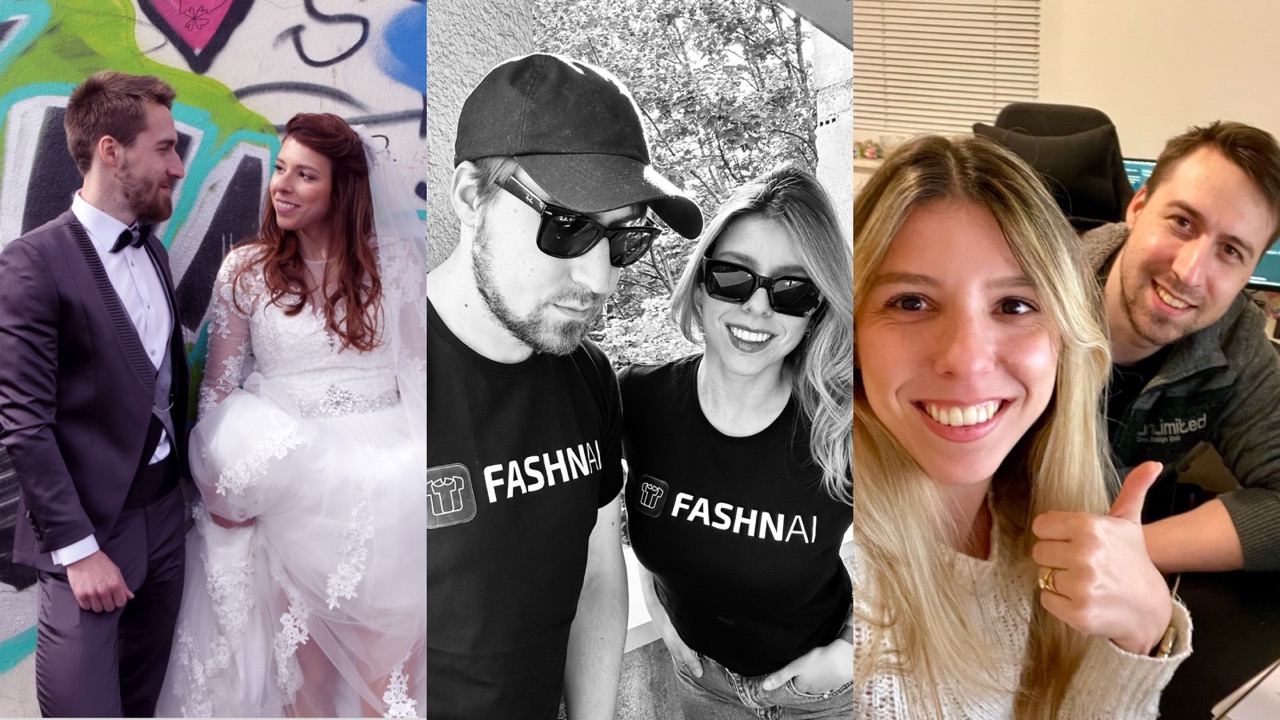Aya and Dan Bochman are changing how the world shops for clothes from their sun-drenched living room in Belgrade, Serbia.
The husband-and-wife team founded FASHN, a company that lets shoppers virtually try on clothes using artificial intelligence. Shoppers can upload photos of themselves and the software creates images of them wearing the clothes in seconds.
Aya and Dan went from quitting their tech jobs to developing innovations for online retail in their home. Sound familiar?
Their story is the Canva story: couple Melanie Perkins and Cliff Obrecht started from Perkins' mother's living room and grew it into a design company worth $40 billion. It's also the main storyline of K-Drama "Start Up!," where a young woman set out to build an AI company while reconnecting with a childhood penpal.
"We were just thinking of entrepreneurship when we watched it," says Aya, who leads marketing, user experience, and development of the app. "It became a motivation for us."
That was during the pandemic, when the two had full-time jobs as engineers and entrepreneurship was a distant goal. Now, they're disrupting the fashion industry, which has a worldwide market value of $1.84 trillion in 2025. The e-commerce side of fashion generates $215 billion in the United States alone, and makes up 42% of total clothing sales in Europe.
Fashion’s old guard may consist of family-owned legacy houses, but the couple endeavors to change how the industry operates—one try-on at a time.
Childhood sweethearts
Aya and Dan started as close friends. The two grew up in the same neighborhood just outside Tel Aviv, Israel. Both of their parents immigrated from the Soviet Union to Israel in the 80s and the two grew up hearing Russian and Hebrew spoken at home. While they went to different schools, they spent their free time together listening to Bring Me the Horizon.
"We were both rebellious kids," Aya says. The two didn't enjoy the educational system's rigid structure and emphasis on rote memorization. So, they found community elsewhere.
"We were emo," adds Dan. "It was about fashion, but it also comes with the culture." Emo, an offshoot of the punk subculture and derives from "emotional," encompasses music, art, fashion, and a renegade lifestyle. Being part of counterculture in the early 2000s hinted at the couple's penchant for charting their own course.
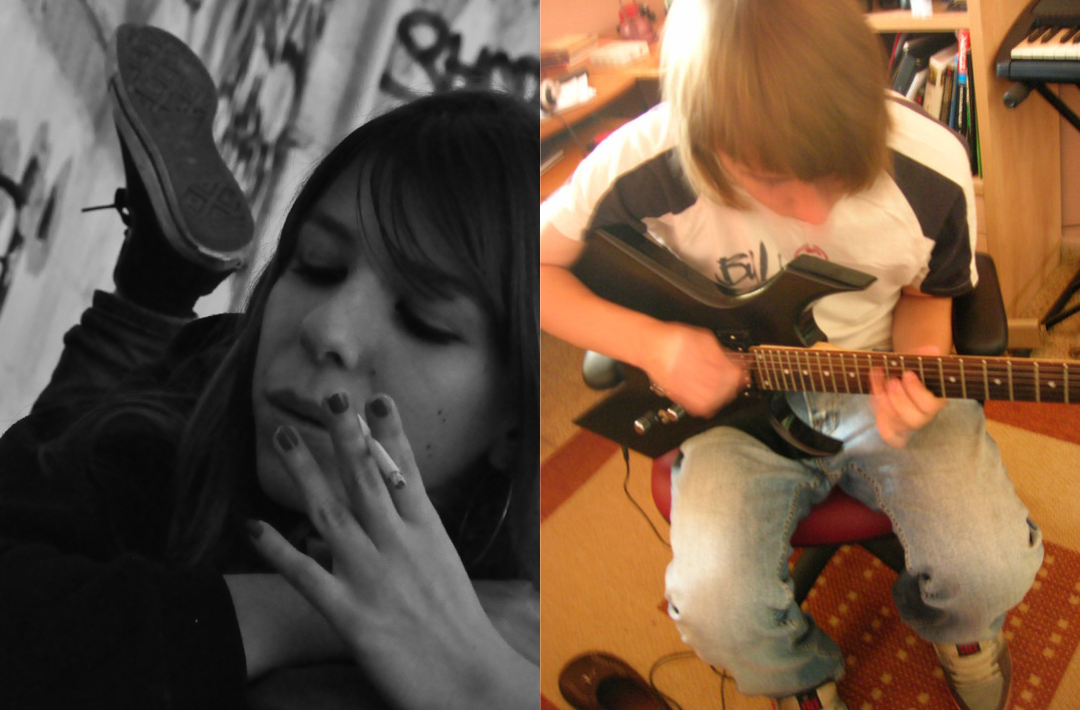
After high school, they entered mandatory military service as medics, and, afterward, faced the decision of what to do for university.
Dan pursued studies in chemistry and engineering, but Aya wasn't so sure. "It was actually Dan's dad who convinced me to not do a bachelor's."
Dan's father, Alexander Bochman, is a university professor and early AI researcher who specializes in causal learning. Aya recalls what he said about higher education, "If you want to just gain experience and find work as fast as you can, just take some courses." This decision eventually led Aya to pursue a career in software engineering, working for companies in Israel and France.
Just two years after Aya left the army, they got married. Aya was 22 and Dan was 24. "Aya was my only girlfriend," Dan says. "My first, serious girlfriend."

Leaping into entrepreneurship
After a few stints in Israel, Aya and Dan settled in Belgrade, Serbia during the early days of the pandemic. In 2021, Aya landed a job in a French tech company that makes software for sharing videos. "It was a bit of a shock working for a French company," says Aya. "I had to get used to stopping work at 5pm or 6pm."
During this time, the two worked side-by-side in their living room. "We started working together," says Dan. "Although we had different jobs, our living room felt like a home office. We had lunch together and we talked about work together."
Three years spent working from home together was a precursor for starting a company together. "If Dan didn't suggest we leave our jobs and start a company, I would never have done it," Aya says. "I like stability. But, we told ourselves it was now or never." With enough savings to stay afloat for a year, they chose to self-fund FASHN from the ground up.
"We never had any connections in the venture capital world," says Aya. "Also, both of us were very technical. It was hard for us to sell ourselves or the business."
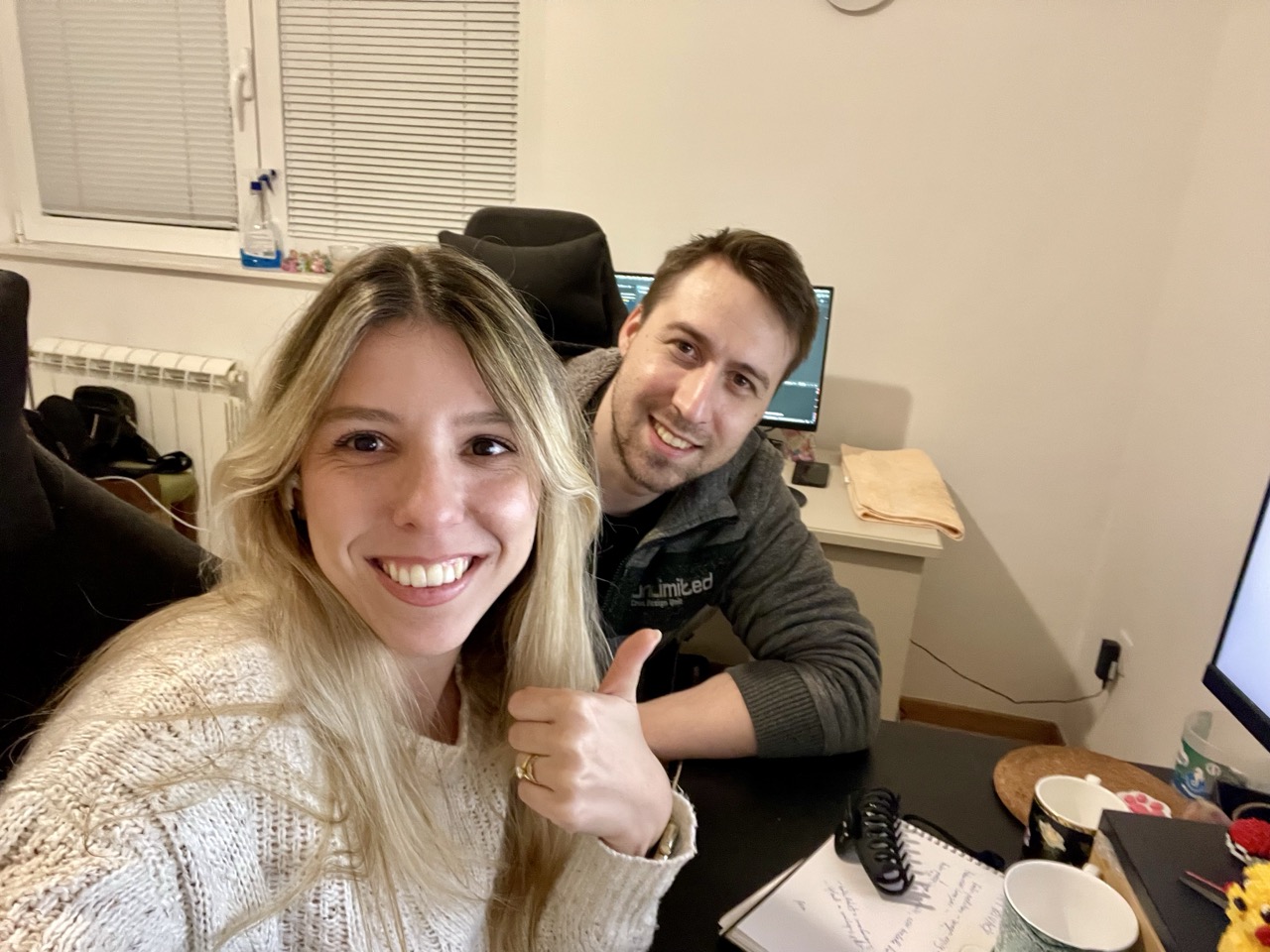
However, Aya and Dan still entertained potential investors, like venture capital firms, angel investors, and accelerators. "We always thought that, maybe, it's because we're not in San Francisco. Maybe when they see Serbia, they get scared." In accelerator Y Combinator, 86% of the spring 2023 batch were based in the Bay Area, despite a remote program.
Not accepting outside investment turned out to be a blessing in disguise. The couple spoke to their friends in the industry who encouraged them to self-fund, or as they say in tech, bootstrap. Aya recalls what they told her: "You don't need to fundraise. If you're a successful bootstrapper you can continue growing."
Building FASHN
Managing their savings as they self-funded FASHN was only one of the many challenges Aya and Dan faced. They also had to develop new technology from scratch while breaking into the fashion industry as engineers.
When brainstorming for business ideas, they landed on software for fashion. "AI is booming in a lot of industries, and we said, fashion seems way behind," explains Dan. "You don't see new features on fashion websites. No smart search, no chatbots." Clothing retailers' websites lack personalization now found in industries like finance and software.
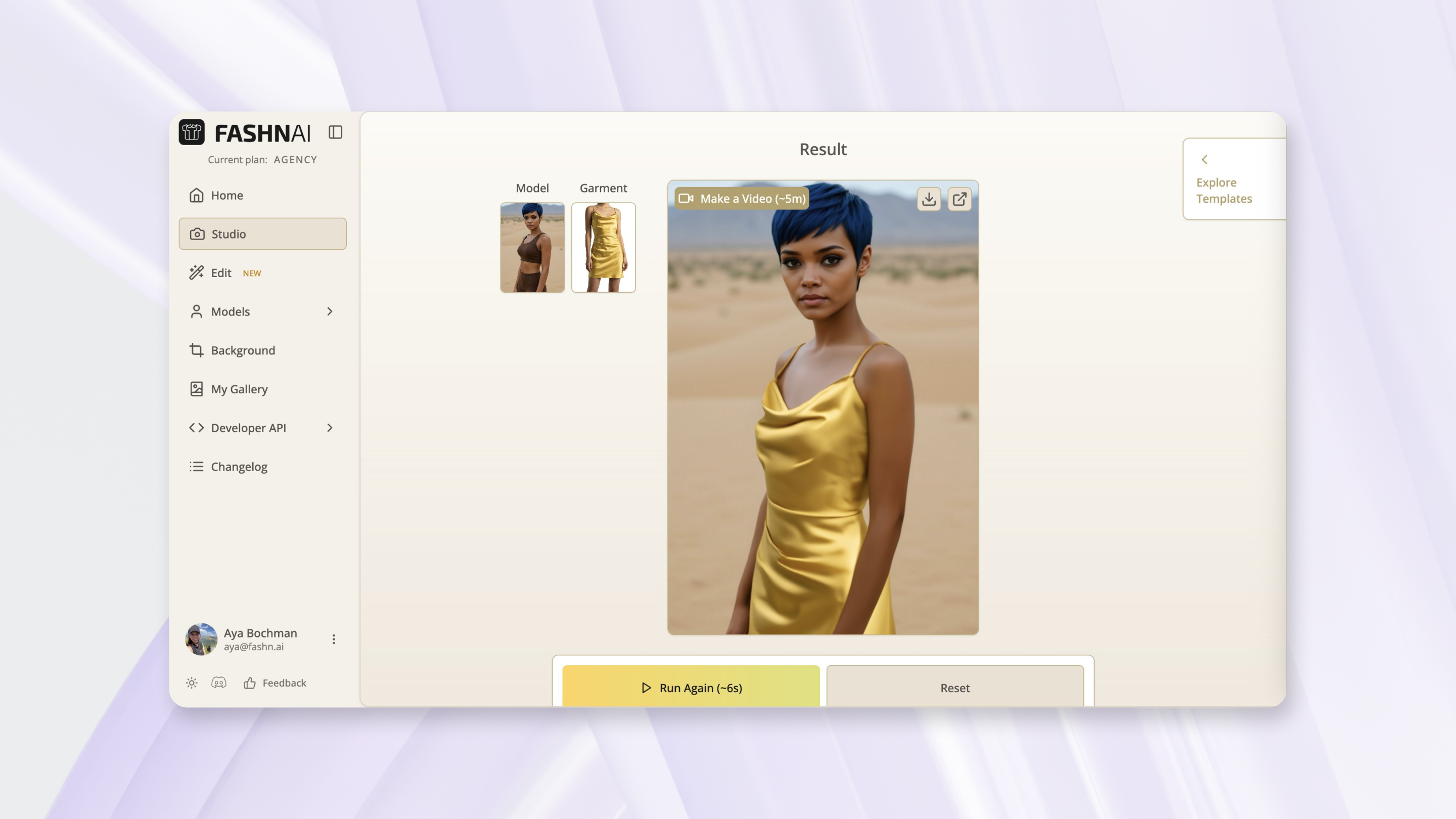
The couple sought to create a solution specifically for online shopping. At first, they considered an AI assistant, like Apple's Siri or Microsoft's Copilot, for fashion. But, they pivoted to content creation tools for brands and then eventually breaking through with virtual try-ons.
Aya and Dan considered basing their AI model off existing ones, like Flux, but decided to build their own from scratch. Dan says, "The biggest challenge for me was that first year incubation period."
Creating a unique model has a host of benefits. Unlike off-the-shelf AI models that use generalized training data, FASHN model is tailored specifically to fabric textures and fit on diverse body shapes. Trying on clothes in FASHN.AI’s virtual try-on model is as true to life as possible.
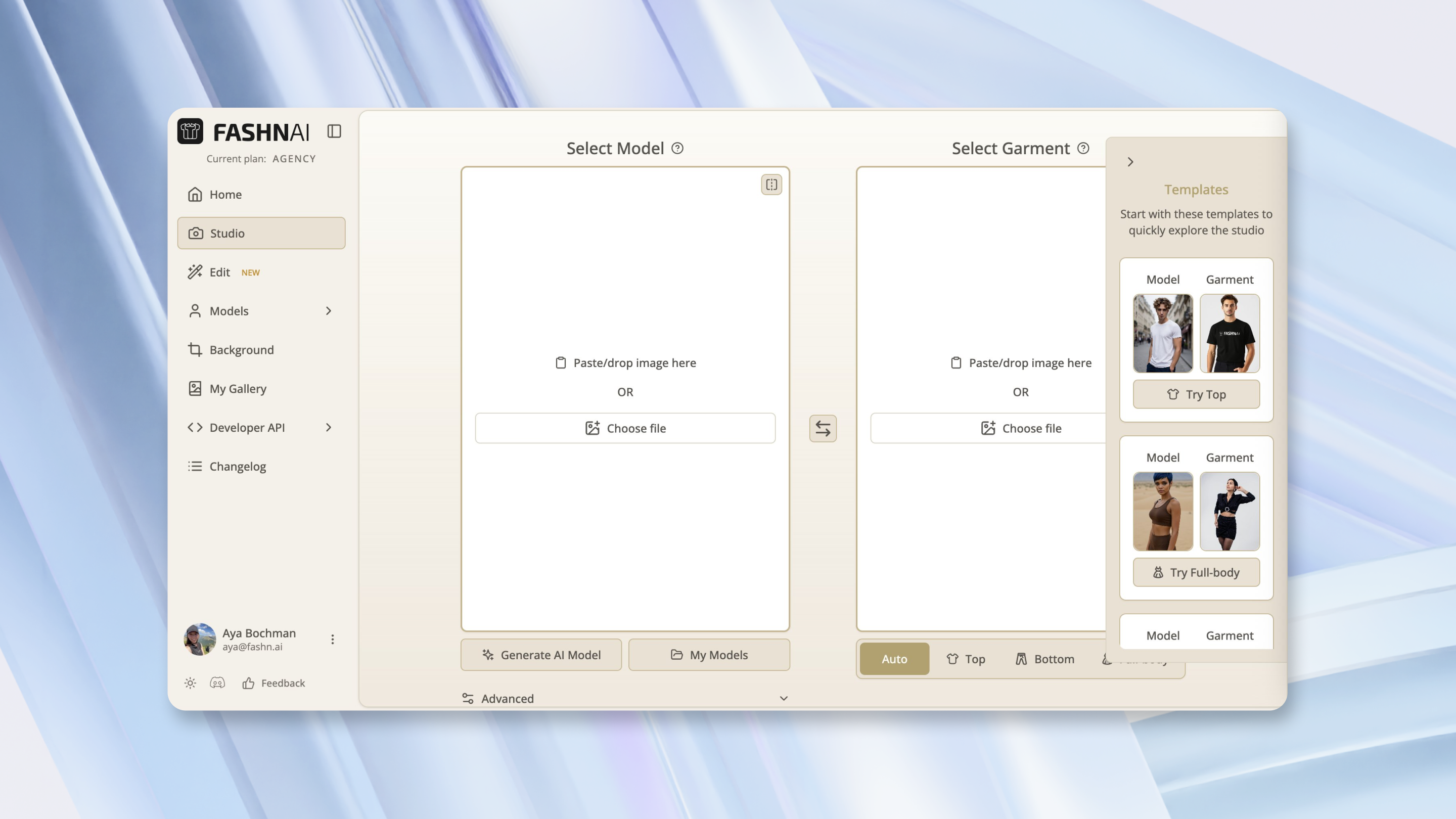
To develop technology this sophisticated, Aya and Dan built and trained an image-focused model, like DALL-E and Midjourney, as opposed to a text-based model, like ChatGPT. They fed the model tremendous amounts of data, and the model learns by extracting information massive data sets. What's incredible about this process is the AI model could easily review countless garment types and materials.
While Dan focused on refining the AI model, Aya handled everything around it, from the software's interface design and development to marketing. "Since starting FASHN, I have learned so much that I'm a new person," she says.
Getting FASHN to where it is now was not easy feat—the couple are the first to say so. Behind the scenes, Aya and Dan invested an extraordinary amount of time and effort.
"It's really hard to work so hard when things are not going well," Dan reflects. "When it becomes six or seven months, and money is running out, then it becomes really hard psychologically."
Changing the fashion industry, one fitting at a time
FASHN's future looks bright. As of writing, the startup generates over $25,000 a month and receives over 100,000 views on their website monthly. "It's still crazy to believe we're now successful and profitable," says Aya. "And, we did it just by ourselves."
Virtual try-on technology, like FASHN, benefits both brands and customers. Brands, especially those with little to no physical locations, could give their customers a more accurate online fitting experience.
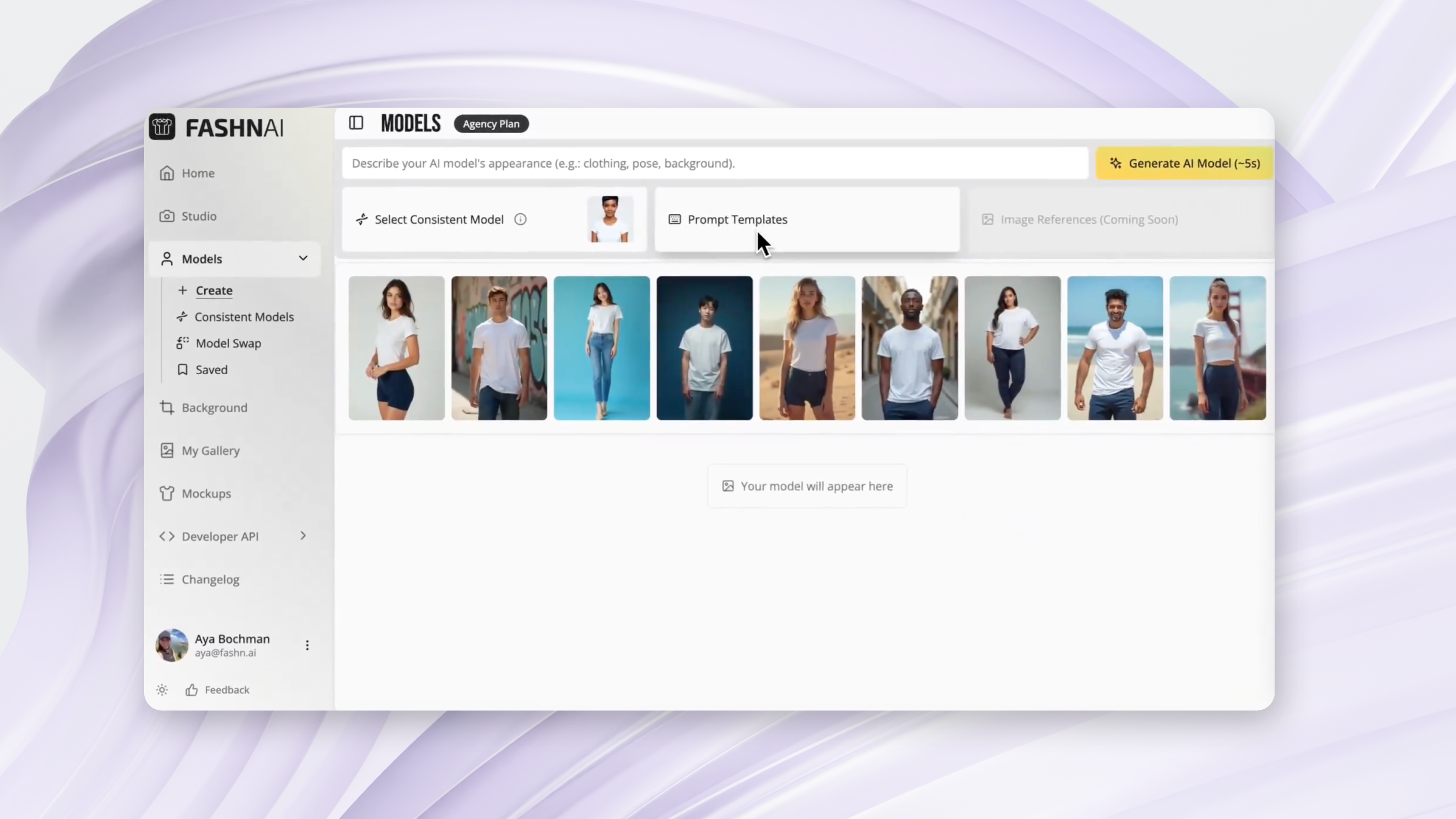
For customers, try-on technology visualizes how clothes would look on them, allowing them to make the most informed purchasing decision. Consequently, this could reduce the number of online returns, which eats into a business' operating costs and the customers' time.
Tech giants also see the potential in this technology. In May 2025, Google unveiled development of their AI try-on technology. Alibaba has also been experimenting with virtual try-on since 2023.
Aya and Dan remain confident in their product. For starters, the two reinvest their resources to build a model tailored for a niche use case. FASHN also receives regular praise from users. On X/Twitter, serial entrepreneur @levelsio posted about FASHN's latest feature, generating AI models:
"...for the last 12 months they're easily the best, and work on most different applications. (from tops, to dresses, etc)"
FASHN's success defies expectations, particularly of those early-day investors who passed on them. Compared to United States and China, Europe (European Union and non-EU countries) has a smaller tech ecosystem and less infrastructure to support startups. In 2024, EU startups raised $52 billion in funding compared to the $138 billion raised by US-based startups.
However, the European Commission recently launched the EU Startup and Scaleup Strategy, which would ideally incentivize and reward entrepreneurship. FASHN is poised to accelerate even more.
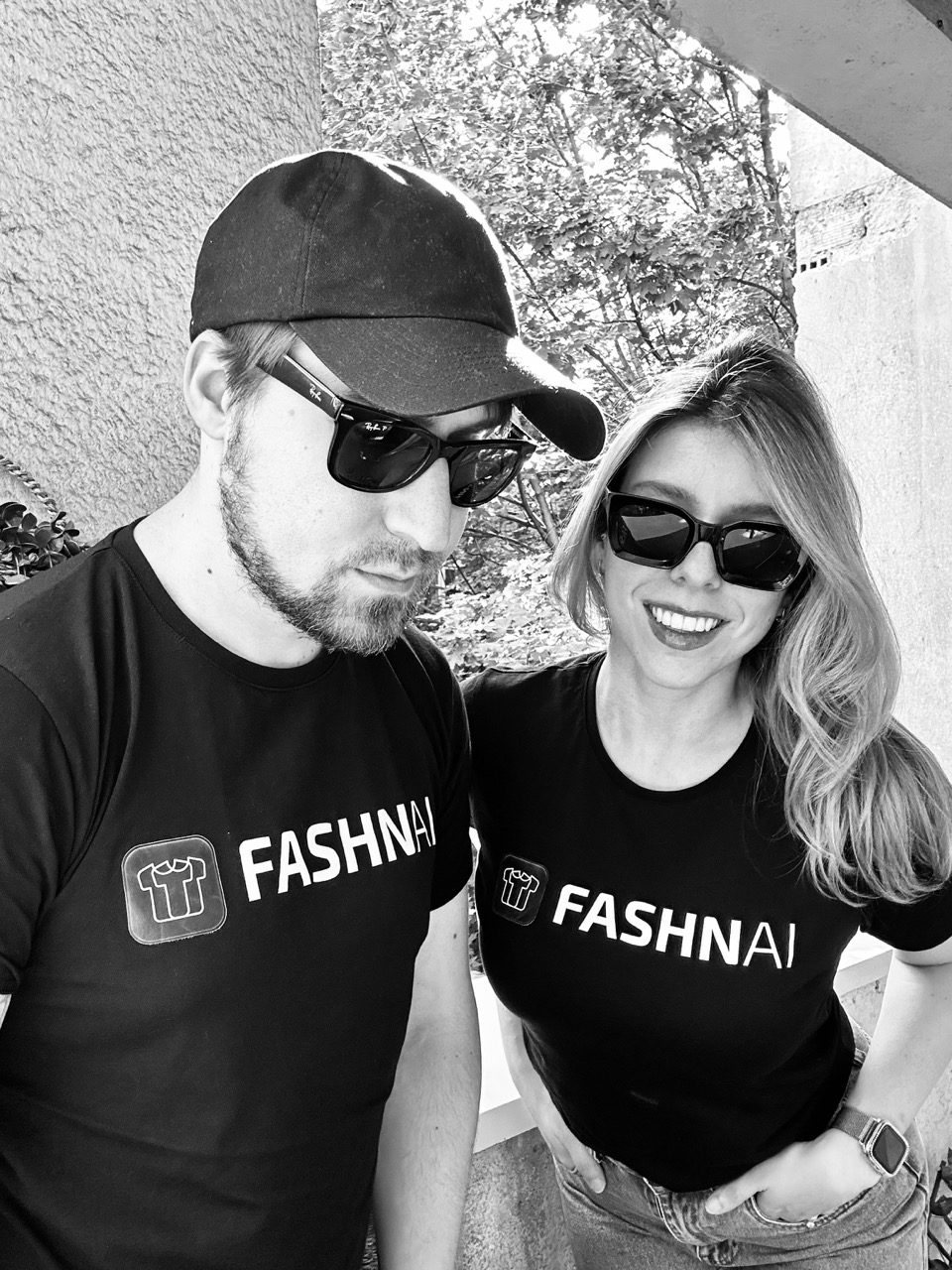
What's next for Aya and Dan?
For FASHN to take over the world of retail, Aya and Dan are taking it one step at a time. They recently hired their first employee to help engage new and existing customers, and to handle go-to-market initiatives. Their eyes are also set on expanding FASHN outside of their Belgrade living room. Given their war chest, they're in no rush.
"The core business is good and people like our product," says Dan. "We know the weaknesses and what customers want, so we're fixing one thing at a time."
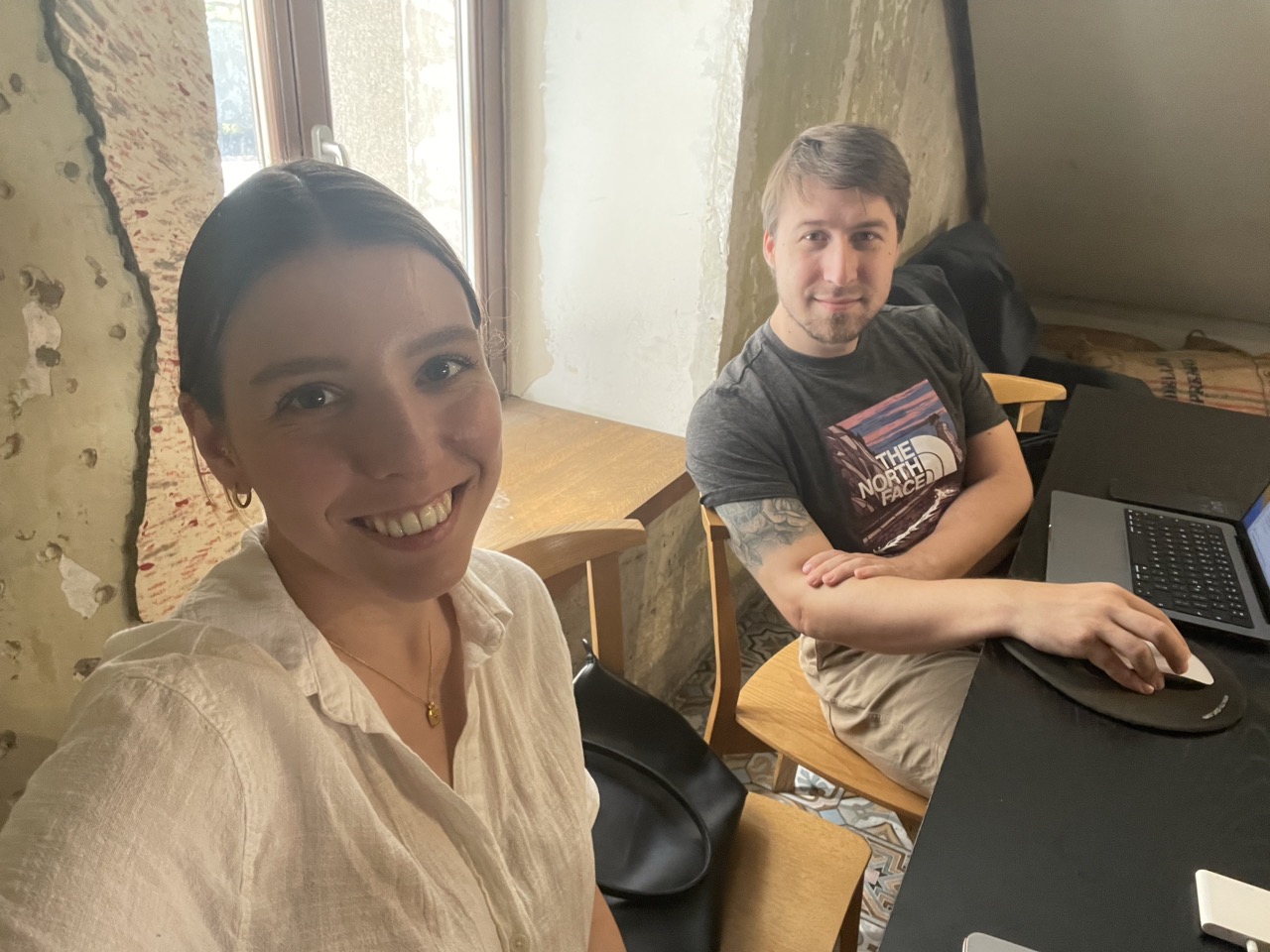
The couple are in the midst of the wave of AI innovation, but it seems they already found their happily-ever-after. "Building something with your spouse is the easiest thing," Aya reflects. "You don't have ego and you don't need to hide your insecurities."
Aya and Dan march towards an unwritten future, but it's the company that makes the adventure worthwhile. Putting on the occasional emo playlist while coding side-by-side also helps.
Try on your favorite clothes virtually at FASHN.AI and, reach out to Aya and Dan on Twitter/X.

